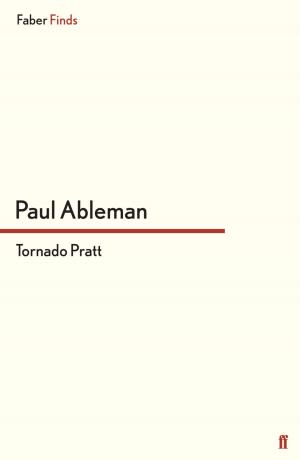| Author: | G. L. Steer | ISBN: | 9780571281015 |
| Publisher: | Faber & Faber | Publication: | October 4, 2012 |
| Imprint: | Faber & Faber | Language: | English |
| Author: | G. L. Steer |
| ISBN: | 9780571281015 |
| Publisher: | Faber & Faber |
| Publication: | October 4, 2012 |
| Imprint: | Faber & Faber |
| Language: | English |
The Tree of Gernika: a Field Study of Modern War was published in 1938. It is G. L. Steer's masterpiece. Martha Gellhorn famously wrote to Eleanor Roosevelt:
'You must read a book by a man names Steer: it is called The Tree of Gernika. It is about the fight of the Basques - he's the London Times man - and no better book has come out of the war and he says well all the things I have tried to say to you the times I saw you, after Spain. It is beautifully written and true, and few books are like that, and fewer still deal with war. Pleas get it.'
As Paul Preston says in his We Saw Spain Die, 'Martha Gellhorn's judgement has more than stood the test of time.'
In his introduction, Nick Rankin writes.' The Tree of Gernika tells how Euzkadi, the democratic republic that the Basques created in their green homeland by the Bay of Biscay, fought for freedom and decency in an atrocious civil war. After a year of struggle, blockaded by sea, bombed from the air, fighting against overwhelming odds in their own hill, the Basques in the end lost to Franco's forces - but they lost honourably, without resorting to murder, torture and treachery.'
It was Steer who alerted the world to the destruction of Gernika (Basque spelling), Guernica (Spanish spelling). It was the most important dispatch of his life, run by both The Times and The New York Times.
Nick Rankin rightly describes The Tree of Gernika as 'a masterpiece of narrative history and eyewitness reporting by someone close to the key events . . .'
The Tree of Gernika: a Field Study of Modern War was published in 1938. It is G. L. Steer's masterpiece. Martha Gellhorn famously wrote to Eleanor Roosevelt:
'You must read a book by a man names Steer: it is called The Tree of Gernika. It is about the fight of the Basques - he's the London Times man - and no better book has come out of the war and he says well all the things I have tried to say to you the times I saw you, after Spain. It is beautifully written and true, and few books are like that, and fewer still deal with war. Pleas get it.'
As Paul Preston says in his We Saw Spain Die, 'Martha Gellhorn's judgement has more than stood the test of time.'
In his introduction, Nick Rankin writes.' The Tree of Gernika tells how Euzkadi, the democratic republic that the Basques created in their green homeland by the Bay of Biscay, fought for freedom and decency in an atrocious civil war. After a year of struggle, blockaded by sea, bombed from the air, fighting against overwhelming odds in their own hill, the Basques in the end lost to Franco's forces - but they lost honourably, without resorting to murder, torture and treachery.'
It was Steer who alerted the world to the destruction of Gernika (Basque spelling), Guernica (Spanish spelling). It was the most important dispatch of his life, run by both The Times and The New York Times.
Nick Rankin rightly describes The Tree of Gernika as 'a masterpiece of narrative history and eyewitness reporting by someone close to the key events . . .'















